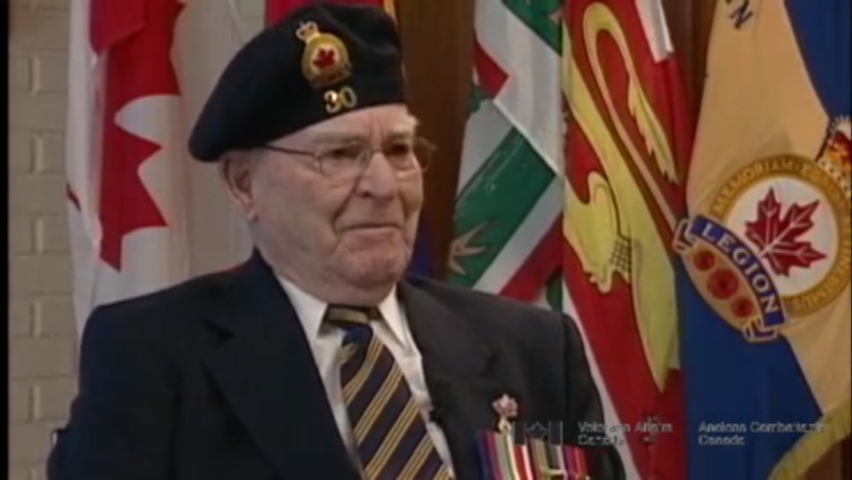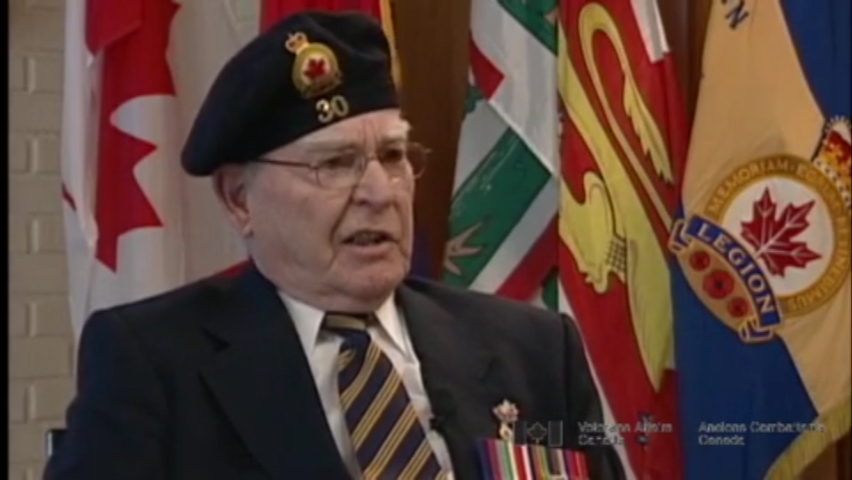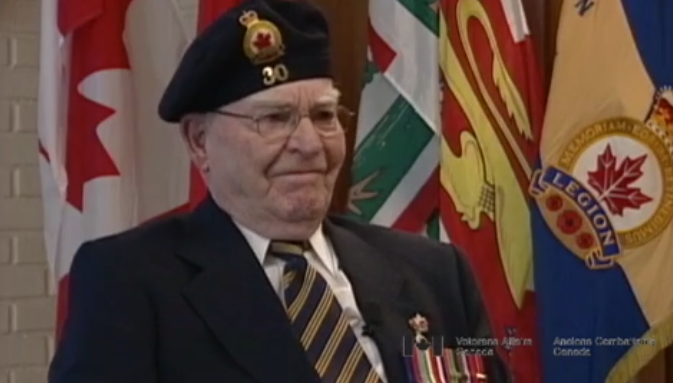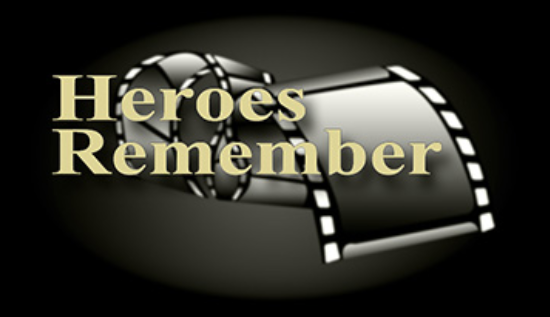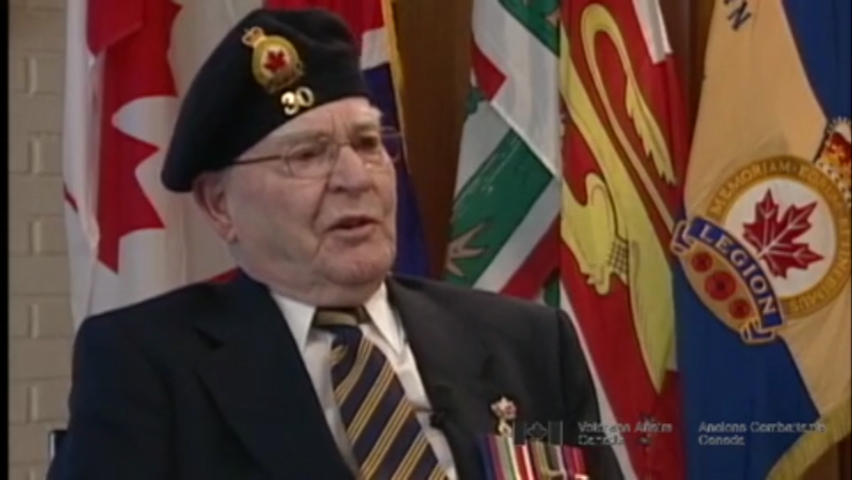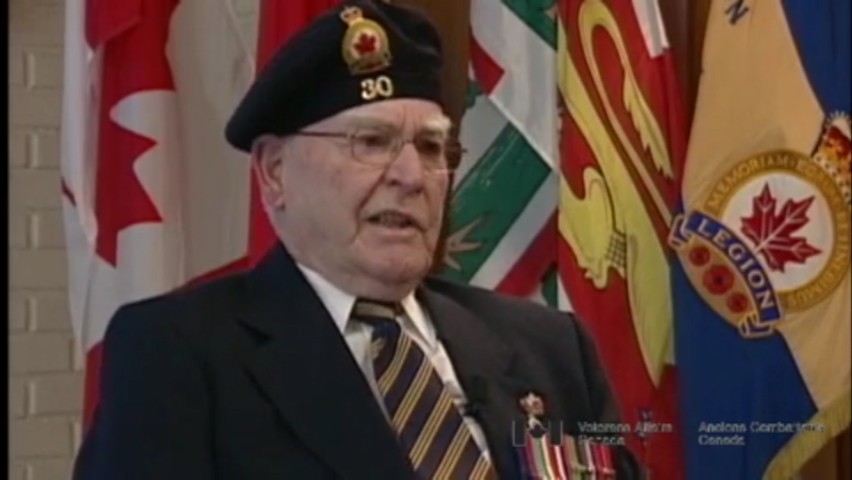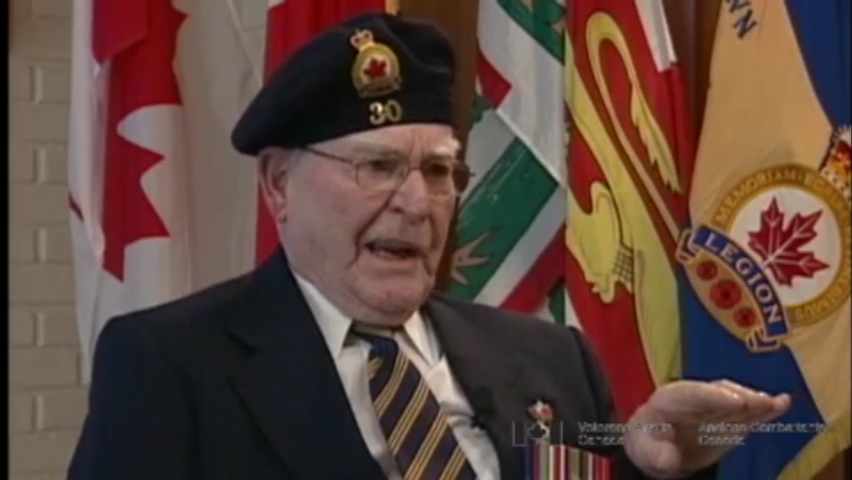Canned Bacon!
Heroes Remember
Canned Bacon!
Transcript
Description
Mr. Carr describes poor food, the illness that often resulted and an odd way of ensuring you were cured
Robert Carr
Mr. Carr was born October 17, 1918, in Oyster Bed Bridge, Prince Edward Island, and grew up on his family's farm. He was the oldest of six children, and one of two brothers old enough to serve in the Second World War. Mr. Carr enlisted in the army as a member of the 1st C Battery, Royal Canadian Horse Artillery, a Manitoba regiment. Once reaching England, he joined the 1st Canadian Medium Regiment as a surveyor. Mr. Carr took part in the Italian campaign and later joined the Allied Forces in Northern Europe for the liberation effort in Holland. After returning to Canada, Mr. Carr surveyed, farmed and finally served many years with the Canadian Postal service. He and his wife, Mildred, currently reside in Charlottetown, Prince Edward Island.
Meta Data
- Medium:
- Video
- Owner:
- Veterans Affairs Canada
- Duration:
- 2:33
- Person Interviewed:
- Robert Carr
- War, Conflict or Mission:
- Second World War
- Battle/Campaign:
- Mount Cassino and Ortona
- Branch:
- Army
- Units/Ship:
- 1st Canadian Medium Regiment
- Rank:
- Staff Sergeant
- Occupation:
- Surveyor
Related Videos
- Date modified:



